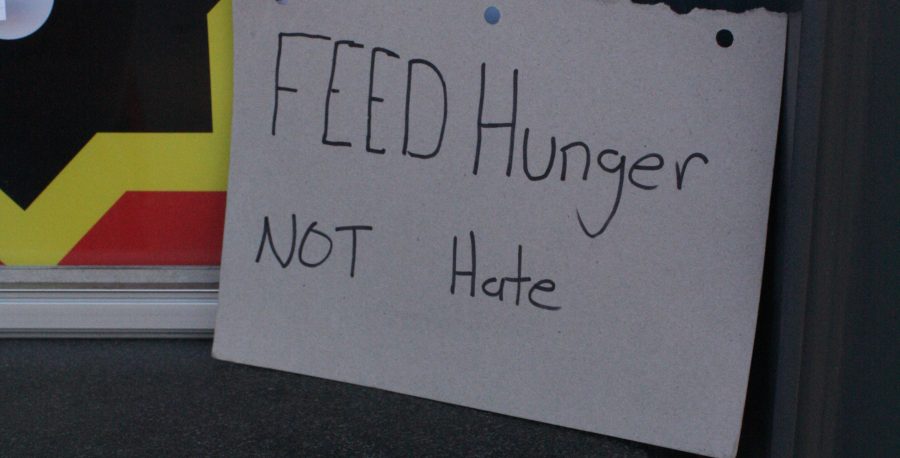The take-out kiosk Conflict Kitchen, located in Schenley Plaza in Oakland, has reopened after its closure due to death threats because of their decision to serve Palestinian cuisine and present a Pro-Palestinian, Anti-Israeli stance.
Conflict Kitchen serves food from countries with which the United States is in conflict. The kiosk focuses on one country at a time and has previously served food from Afghanistan, Cuba, Iraq, North Korea, and Venezuela.
Conflict Kitchen began serving Palestinian food in October, and the kiosk received pushback from some local populations almost immediately.
According to a Pittsburgh Post-Gazette article from October 7, the day after the opening of Conflict Kitchen’s Palestinian iteration, some Jewish organizations perceived the menu, programming, and promotional materials—including their paper food wrappers containing quotes from interviews with Palestinians from the United States and Gaza—as “anti-Israel” and “one-sided” because they do not represent the Israeli point of view.
The President and Executive Vice President of the Jewish service organization B’nai B’rith International, Allan J. Jacobs and Daniel S. Mariaschin respectively, expressed their concerns about the project in a letter to the Heinz Endowments, which awarded Conflict Kitchen a $50,000 grant last year to aid in its move from East Liberty to Oakland.
Jacobs and Mariaschin stated that they believe Conflict Kitchen’s goals to be incongruent with those of the Heinz Endowments.
Grant Oliphant, President of the Heinz Endowments, responded to B’nai B’rith in a letter and to the general public in a statement on the Heinz Endowments’ website.
“The Endowments has a long and proud history of supporting arts organizations whose work can be challenging or controversial, and I stand firmly with our staff in carrying that tradition forward,” he said in the statement posted on their website. “While we sometimes do not agree with the ideas presented in the work we fund, we absolutely defend the right of artists and arts organizations to express their work freely and without fear of reprisal.”
In a post on their website, Conflict Kitchen responded by saying, “Promoting understanding is at the core of Conflict Kitchen’s mission.”
“We have demonstrated this in the past by presenting the food, culture, and viewpoints of Iranians, Afghans, Cubans, North Koreans, and Venezuelans,” read the post. “We believe that presenting the viewpoints of Palestinians promotes understanding of Palestinians.”
On November 7, the kiosk received a letter containing death threats because of their menu and programming. They stated on their Facebook page that they would, “be closed until the credibility of the letter [could] be established by the Pittsburgh police.”
In the few days Conflict Kitchen remained closed, locals who support the kiosk’s mission to present the Palestinian viewpoint covered the façade with notes of encouragement.
Several notes expressed Jewish support for Conflict Kitchen’s freedom of representation.
“You are loved and supported by Jewish Students, too! Come back soon,” one message read.
“Dear Friends, My religion is kindness,” read another, which was signed by Rabbi Art Donsky.
Another post containing a drawing of the Star of David and the word, “support,” was affixed to the kiosk’s sign, meaning either Israeli support for Conflict Kitchen, or conversely, support for Israel over Palestine.
Other messages on notebook paper, notecards, and sticky notes contained drawings and encouragements from locals—some of whom took political interest in the controversy and closure, and others of whom simply claimed to be hungry.
One of the simplest messages summed up the general sentiment: “FEED Hunger, NOT Hate.”
As of Wednesday, November 12, Conflict Kitchen has reopened, although the source of the death threats is still under investigation.
“We are overwhelmed by the generous support we have received this week for the project and the rights of Palestinians to present their perspectives without fear of reprisal,” said Conflict Kitchen on their blog. “We are deeply moved by these responses and are excited to reopen and continue our programming.”
Correction 11/18/14: The death threats were not due to serving Palestinian food, but rather the fact that the Conflict Kitchen presented a Pro-Palestinian, Anti-Israeli stance.


